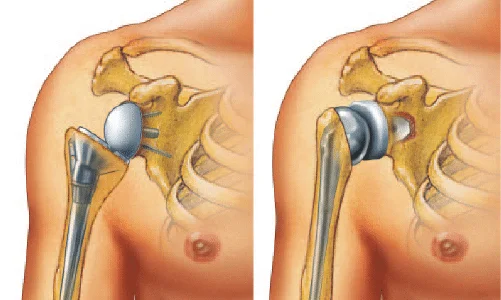Shoulder pain and limited mobility can severely impact your daily life. If you are suffering from a rotator cuff injury, rotator cuff repair surgery may be the solution you need. Consult with the best Orthopedic surgeons for rotator cuff repair surgery at the CK Birla Hospital.

Rotator cuff repair surgery is performed to fix tears in the rotator cuff tendons in our shoulder. These tendons can be damaged due to acute injury or degenerative wear and tear over time. If left untreated, a torn rotator cuff can lead to chronic pain, weakness, and loss of shoulder function, significantly affecting your mobility and quality of life.
| Rotator Cuff Injury | Cause | Symptom |
| Partial Tear | Damaged but not completely severed tendon. | Mild shoulder pain and growing weakness in lifting the arm. |
| Full-Thickness Tear | Torn tendon that often separates from the bone. | severe pain and an inability to raise the arm or perform overhead activities. |
| Acute Tear | Usually the result of a sudden injury, such as a fall or lifting a heavy object. | Sudden, intense pain, swelling, and a snapping sensation in the shoulder. |
| Degenerative Tear | Caused by wear and tear over time, often seen in older adults. | Gradual onset of pain, stiffness, and decreased range of motion in the shoulder. |
| Massive Tear | Involves multiple tendons, resulting in significant loss of shoulder function. | Chronic pain, severe weakness, and a marked decrease in shoulder mobility. |
| Aspect | Minimally Invasive Surgery | Traditional Open Surgery |
| Incisions | Smaller incisions | Larger incisions |
| Recovery Time | Shorter recovery period | Longer recovery period |
| Pain and Scarring | Less pain and minimal scarring | More pain and noticeable scarring |
| Hospital Stay | Shorter hospital stay | Longer hospital stay |
| Infection Risk | Reduced risk of infection | Higher risk of infection |
Rotator cuff repair surgery typically takes about 1-2 hours, depending on the complexity and extent of the tear and the individual patient’s condition.
Patients are mostly discharged on the same day of the surgery. The duration of the hospital stay may vary based on individual circumstances.
Patients can usually return to light work within 6-8 weeks, but full recovery and return to normal work activities may take up to 4-6 months, depending on the nature of the job.
While rotator cuff repair surgery is highly effective, there is a possibility of re-injury. Following post-surgery care instructions and engaging in recommended physical therapy can help reduce this risk.
If you experience severe pain after rotator cuff repair surgery, contact your surgeon or healthcare provider immediately. It could be a sign of complications that require prompt attention.
Most health insurance plans cover rotator cuff injury surgery, but coverage may vary. When planning the surgery, make sure to check with your insurance provider.
If you are considering rotator cuff repair surgery in Gurgaon, the CK Birla Hospital is here to provide you with expert care and support. Contact us to schedule a consultation with our experienced orthopaedic surgeons.